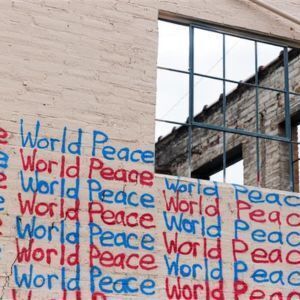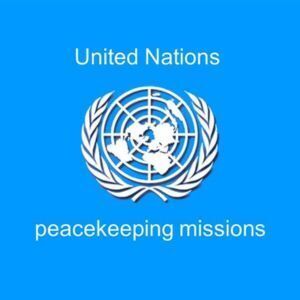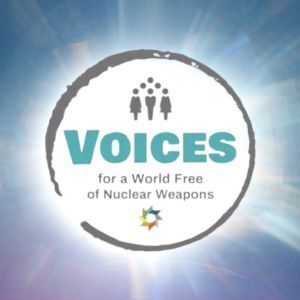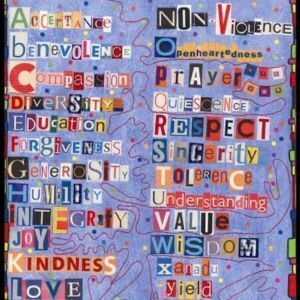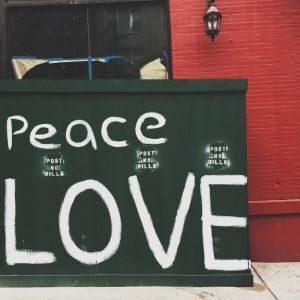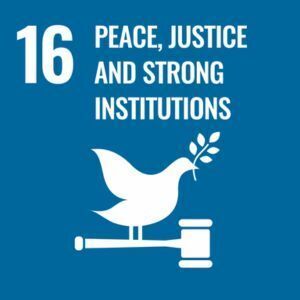Photo by Sunguk Kim on Unsplash
Individuals have international duties which transcend the national obligations of obedience. Therefore, (individual citizens) have the duty to prevent crimes against peace and humanity from occurring.
~ Nuremberg War Crime Tribunal, 1950
Peace Begins in the Human Heart
The basic concept of GoldenRuleism:
Do for all others, both directly and indirectly, what you would want done for you. Don’t do to any others, either directly or indirectly, what you wouldn’t want done to you.
can be found in one form or another as far back as the civilizations of ancient China, Babylon, Egypt, Greece, and Rome. It has been called an “ethic of reciprocity,” and can be found in all cultures, and in all world religions as well as in the philosophies of humanists and existentialists. It is, in short, an ethical code that most all of humanity can agree on. Why then do we find ourselves here in the 21st century inhabiting a world that is dangerously polarized, with a growing imbalance of power and wealth among the ever-increasing number of people on the Earth, with continuing wars that ravage populations and waste resources, with massive genocide and terrorist atrocities that endanger us all? How is it that we find humankind facing the terrifying possibility of environmental catastrophe? These questions confront us with a greater urgency than ever, and it is these questions that have led us to the human heart and the human brain—the great possibilities of compassion that lie within each human being—to identify a solution.
Issues directly related to peace encompass a broad range of interconnected factors. Some key issues include:
- Conflict Resolution and Prevention: Addressing conflicts at various levels, from interpersonal to international, through peaceful and nonviolent means. This involves promoting dialogue, mediation, negotiation, and reconciliation to prevent and resolve conflicts.
- Disarmament and Non-Proliferation: Reducing the presence and potential use of weapons, particularly nuclear weapons, and working towards disarmament agreements to create a safer and more peaceful world. This includes efforts to prevent the spread of weapons of mass destruction and limit arms races.
- Human Rights and Social Justice: Promoting and protecting human rights, including civil, political, economic, social, and cultural rights, as well as ensuring equality, justice, and dignity for all individuals and communities. Addressing social injustices, discrimination, and inequalities is crucial for sustainable peace.
- Sustainable Development: Recognizing the interdependence between peace and development, sustainable development goals address poverty, inequality, environmental degradation, access to education, healthcare, and other basic needs. Creating conditions for inclusive and sustainable development contributes to peaceful societies.
- Gender Equality and Women's Empowerment: Promoting gender equality and empowering women and girls is essential for peace building. Recognizing women's participation, leadership, and perspectives in decision-making processes, conflict resolution, and post-conflict reconstruction leads to more sustainable and inclusive peace.
- Climate Change and Environmental Protection: Addressing the environmental challenges and climate crisis is vital for peace and stability. Environmental degradation, competition over resources, and the impacts of climate change can exacerbate conflicts and displacement, requiring sustainable solutions for a peaceful future.
- Refugee and Migration Issues: Addressing the challenges faced by refugees, internally displaced persons, and migrants through humanitarian assistance, protection, and long-term solutions. Ensuring the rights, well-being, and integration of displaced populations contributes to peace and stability.
- Peace Education and Cultural Understanding: Promoting peace education, intercultural dialogue, and understanding among diverse communities and nations to foster empathy, respect, and peaceful coexistence. This includes addressing prejudices, stereotypes, and promoting tolerance.
- Good Governance and Rule of Law: Strengthening institutions, promoting transparency, accountability, and the rule of law, and combating corruption contribute to peaceful societies. Upholding democratic values, human rights, and promoting effective and just governance are key components of peace.
- International Cooperation and Diplomacy: Promoting multilateralism, cooperation, and dialogue among nations to prevent conflicts, resolve disputes peacefully, and address global challenges collectively. Diplomatic efforts and peaceful negotiations are vital for maintaining peace between nations.
Addressing these issues requires the collective efforts of governments, civil society, international organizations, and individuals to build a culture of peace, foster understanding, and work towards sustainable and inclusive solutions.
Mission
Work with Charter for Compassion partners and international peace organizations to inform global citizens of avenues of peace building that are occurring to assure a more just and equitable, and peaceful world.
Vision
Imagine the impact of vast numbers of people “bringing compassion to life” in their own lives, in all their families, in business, in education, in healthcare, in religious and spiritual practices, in the arts, and in an awareness of the environment.
Goals
While the goals below are overarching they reflect the work of our Peace Sector Partners, and the involvement of the Charter’s sectors. Each goal is based in education and compassionate action.
- Inform our membership on the realities of conflict prevention. The primary goal here is to prevent conflicts from arising in the first place by addressing root causes, promoting dialogue, and creating conditions for peaceful coexistence.
- Explore the processes of conflict resolution. When conflicts occur, the goal is to facilitate their resolution through peaceful means, such as negotiation, mediation, and dialogue, aiming for mutually acceptable and sustainable solutions.
- Participate in reconciliation and healing. To promote lasting peace, the goal is to foster reconciliation, healing, and the rebuilding of trust among individuals, communities, and societies affected by conflict.
- Work with the Charter’s social justice sector to promote peace and equity. Peace should be built on a foundation of social justice, equality, and human rights. The goal is to address systemic inequalities, discrimination, and injustices that contribute to conflicts and to promote equitable and inclusive societies.
- Promote conversations that help individuals understand the links between peace and sustainable Development. Peace and development are interconnected. The goal is to promote sustainable development that addresses economic, social, and environmental concerns, reducing poverty and inequality, and fostering conditions for peaceful and resilient societies.
Strategies
- Dialogue and Mediation: Facilitating open and constructive dialogue among conflicting parties and employing skilled mediators to assist in finding common ground and resolving differences peacefully.
- Education and Awareness: Promoting peace education, raising awareness about conflict dynamics, and fostering understanding, empathy, and tolerance among individuals and communities.
- Advocacy and Policy Reform: Advocating for policies and reforms that address the root causes of conflicts, promote peace, and support human rights, justice, and inclusive governance.
- Peace building Programs: Implementing programs that focus on reconciliation, community engagement, and conflict transformation, fostering healing, trust-building, and sustainable peace.
- Building Networks and Partnerships: Collaborating with local communities, civil society organizations, governments, and international actors to build networks, share knowledge, and coordinate efforts in peace building and conflict resolution. Utilize the Charter’s Map of Co-Creators so that individuals can find like minded people with whom to work.
- Economic and Social Development: Supporting initiatives that promote economic opportunities, access to education, healthcare, and basic services, as well as addressing inequalities to create the conditions for peaceful and thriving societies.
- Restorative Justice: Implementing restorative justice practices that prioritize healing, accountability, and reconciliation, allowing individuals and communities affected by conflicts to address harm and rebuild relationships.
- International Cooperation: Engaging in multilateral diplomacy, promoting dialogue among nations, and supporting international institutions and agreements that foster peace, disarmament, and conflict prevention. Participate in programs such as Voices for a Nuclear Free World.
- Empowering Marginalized Voices: ensuring the participation and representation of marginalized groups, including women, youth, and minority communities, in decision-making processes and peace building efforts,
- Sustainable Peace building: Taking a long-term perspective in peace building efforts, recognizing that sustainable peace requires ongoing commitment, monitoring, evaluation, and adaptation of strategies to changing contexts and challenges



